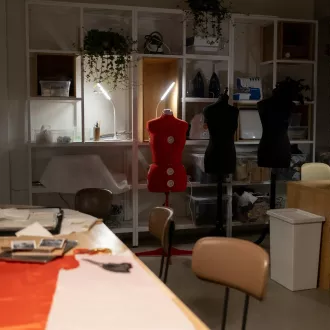ByOnlinecourses55

Qualifications needed to be interior designer - interior decoration
Interior design is a profession that combines creativity, technique and a deep understanding of space and its functions. To become a successful interior designer, certain academic qualifications and practical skills are essential. In this article, we will explore the essential qualifications and competencies that will help you stand out in this competitive field.
Most interior designers begin their career with a formal interior design education. Bachelor's degree programs in interior design typically last three to four years and cover topics such as design theory, art history, spatial planning, materials, and applied design technology. In addition, many universities and technical schools offer certificate courses that can complement a career in interior design.
An interior designer must have a solid understanding of the principles of architecture and construction. This includes knowledge of building regulations, building structure, and materials used in construction. This knowledge is crucial to ensure that designs are not only aesthetically pleasing, but also safe and functional.
In the digital age, interior designers must be familiar with a variety of design software, such as AutoCAD, SketchUp, and Revit. These tools allow for the creation of detailed floor plans, 3D models, and visual presentations that are essential for communicating ideas to clients and contractors. In addition, proficiency with rendering and image editing tools is highly valued in the industry.
Solid practical experience is vital for any interior designer. This can be gained through internships, freelance projects, or collaborations with experienced designers. A well-curated portfolio showcasing a variety of projects is one of the most important tools for obtaining new clients or employment at a design firm.
Creativity is at the heart of interior design. A designer must be able to develop innovative concepts that reflect the needs and desires of their clients. Having an artistic vision allows you to combine colors, textures, furniture and accessories to create harmonious and functional spaces.
In addition to technical skills, an interior designer must be a good communicator and an efficient project manager. Being able to work as part of a team, coordinate with contractors and suppliers, and manage a project's time and budget is essential for success in this field.
With the growing interest in sustainability, many clients are looking for designers who are committed to green design. Knowing sustainable materials, energy saving techniques and responsible design practices is not only an added value, but also a necessity in modern design.
Interior design is a career that requires a unique combination of formal education, technical skills, practical experience and creativity. Developing these qualifications will not only prepare you for the challenges of the field, but will also position you as a competent professional capable of transforming spaces into functional works of art. Investing in your education and building a strong portfolio is the first step to success in the world of interior design.